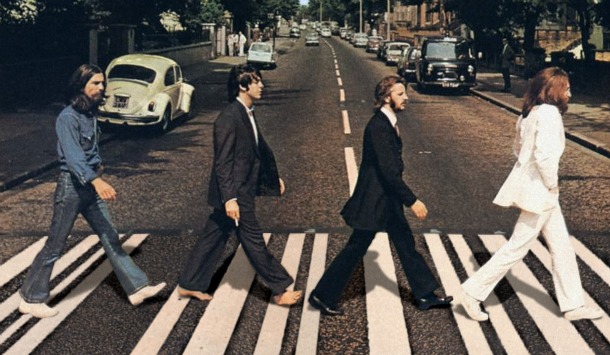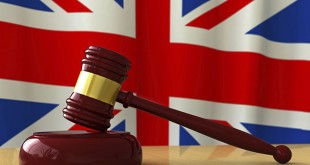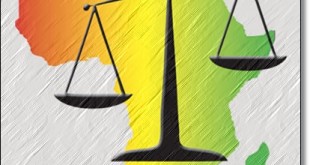Picture yourself in a boat on a river, with tangerine trees and marmalade skies. If that did not set any cogs in motion then perhaps a simple description of old flattop with his joo-joo eyeballs might have a more stimulating effect. Of course, with a little help from John Lennon, I am talking about those four, once young, men from Liverpool who told us that all we needed was love.
But how is any of that relevant to an article in a law review?
In 1957 a young John Lennon formed the Quarrymen, a skiffle band with friends from school. A few months later Lennon replaced his school friends with Paul McCartney and George Harrison, both joining the band as guitarists. Following the addition of Stuart Sutcliffe on bass guitar and Pete Best on drums, The Beatles were born. After the departures of both Sutcliffe and Best, the latter being replaced by Ringo Starr on drums, the Beatles recorded their first album for EMI’s Parlophone label under the guidance of their manager Brian Epstein and their producer George Martin. By the end of the 60s the Beatles were the biggest band the world had ever seen. They sold millions of records, were awarded MBEs from the Queen of England and the term Beatlemania was used to describe the reaction they sparked worldwide. They influenced many other musicians and were also seen as counter culture icons and a symbol of the social revolution of the 1960s. Unfortunately, however, such a story cannot continue forever and so to reality and the many legal implications of the break up of the Fab Four.
The Legal Issues
For a group known for songs such as “All You Need is Love”, “Revolution” and “Let It Be” it is perhaps surprising that the band’s split was acrimonious, corporate and drawn out. The end of the band was not marked by four long haired men going their separate ways, guitars in hand. Instead Paul McCartney filed a suit for the dissolution of The Beatles partnership on 31 December 1970. This was following John Lennon’s private announcement that he was leaving the band. Due to numerous legal disputes the dissolution of the partnership was not completed until the mid 70s. This was only the beginning of legal matters involving the Beatles and an exploration of some of these issues reads like a legal course in entertainment, intellectual property and company law.
In 1968 the Beatles formed Apple Corps Ltd which replaced their earlier company Beatles Ltd. Having been advised by their accountants that they would soon be facing heavy tax liabilities to the Inland Revenue on recently earned capital, it was decided that they should instead invest the capital in some form of business venture. Lennon and McCartney gave a number of interviews in which they explained that the aim of the company was to provide opportunities for artistic ventures and the four Beatles were to be the directors. A number of subsidiaries were incorporated so as to expand into different branches of multimedia including Apple Electronics and Apple Films. Viewing the Beatles from a legal perspective such as this reveals that, at the height of Flower Power, the band were ingeniously avoiding tax liabilities and in the process became directors of an international media conglomerate.

Apple Corps Ltd v Apple Computer Inc
The first dispute in 1978 began with Apple Corps Ltd filing a lawsuit against the computer manufacturer Apple Computer for trademark infringement. These disputes continued between 1978 and 2006. Apple Corps Ltd filed a further suit for breach of contract alleging that Apple Computer Inc had breached an earlier trademark agreement by using the Apple logo for its iTunes Music Store logo. On 8 May 2006 the High Court of Justice ruled in favour of Apple Computer.
Apple Corps Ltd v EMI
In 1979 the Beatles filed a law suit against both EMI and Capital record companies alleging that the band was owed millions of pounds in unpaid royalties. In 1989 the case was settled and it was reported that, as part of the settlement, the band received an increased royalty rate. However this was not the end of the matter. In 2005, Apple Corps Ltd sued EMI for unpaid royalties. This case was also settled though the details of the agreement were confidential.
To Conclude
The years of legal disputes complete the picture of the Beatles story; a story not solely concerned with music and counter culture ideals but also trademark infringements and breaches of contract. All of this suggests that perhaps a more fitting name for their 1967 hit may have been “All You Need is Law”.
Ngu Atanga
Lincoln College, Oxford
 Le petit juriste Site de la revue d'actualité juridique
Le petit juriste Site de la revue d'actualité juridique





